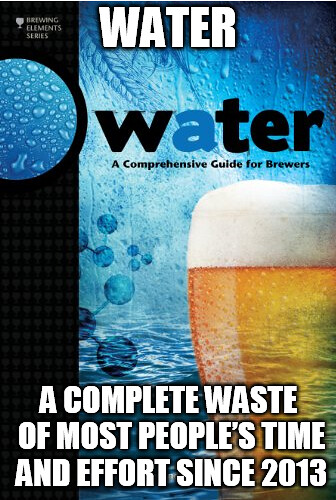I want to start modifying my brewing water and i've overloaded myself with research. I have not gotten a water report yet. I did purchase a PH meter. I read and own Water by Palmer and Kaminski. I use a Culligan in-line filter on my outside hose tap for water and consistently make beers that place top two or better in local competitions. But I know i can do better.
What I think I know to be true:
Mash PH is one thing (helps with conversion and preserving longevity of packaged beer)
Brewing salts are another (the "seasonings" that will be different to compliment different styles, which will also affect PH of the boil and ultimately the yeast happiness)
PH at the time of pitching, and PH throughout fermentation is another thing (affecting overall yeast happiness)
My plan:
Start by dialing in mash PH and that is it to start.
My questions:
1. Is my plan silly and I should start off somewhere else?
2. Will hitting a target mash PH make THAT much of an impact on my final product?
3. Will shooting for a target mash PH muddy things down the line in the boil and fermentation if I don't make any other modifications later in the brewing process?
4. Has anyone else taken a "baby steps" approach to introducing water modifications to their brewing that proved to be fruitful?
Thanks all.
What I think I know to be true:
Mash PH is one thing (helps with conversion and preserving longevity of packaged beer)
Brewing salts are another (the "seasonings" that will be different to compliment different styles, which will also affect PH of the boil and ultimately the yeast happiness)
PH at the time of pitching, and PH throughout fermentation is another thing (affecting overall yeast happiness)
My plan:
Start by dialing in mash PH and that is it to start.
My questions:
1. Is my plan silly and I should start off somewhere else?
2. Will hitting a target mash PH make THAT much of an impact on my final product?
3. Will shooting for a target mash PH muddy things down the line in the boil and fermentation if I don't make any other modifications later in the brewing process?
4. Has anyone else taken a "baby steps" approach to introducing water modifications to their brewing that proved to be fruitful?
Thanks all.



